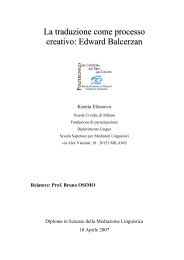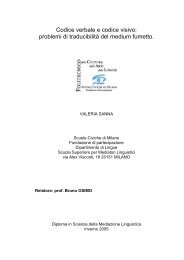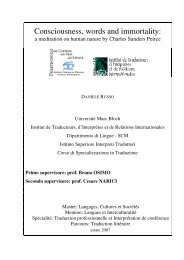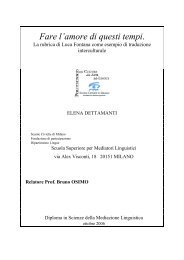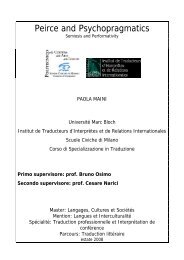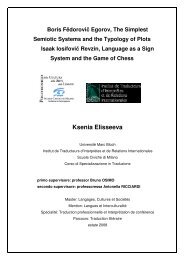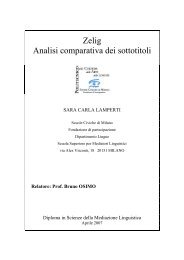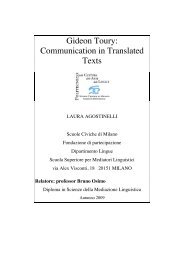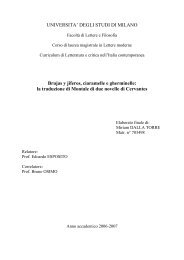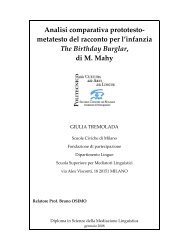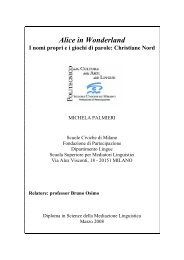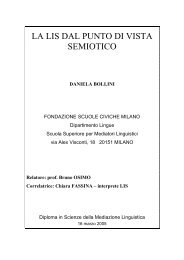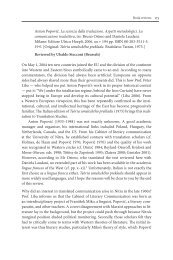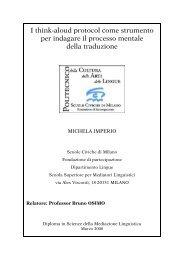A Semiotic Approach to the Theory of Translation: - Bruno Osimo ...
A Semiotic Approach to the Theory of Translation: - Bruno Osimo ...
A Semiotic Approach to the Theory of Translation: - Bruno Osimo ...
Create successful ePaper yourself
Turn your PDF publications into a flip-book with our unique Google optimized e-Paper software.
Units <strong>of</strong> natural<br />
0 0 0<br />
metalanguage →<br />
(or artificial intermediate<br />
language <strong>of</strong> T M )<br />
. . . . .<br />
. . . . . . .<br />
. . . . . .<br />
Units <strong>of</strong> L N → X X X Y Y Y ← Units <strong>of</strong><br />
L N ’<br />
Figure 3<br />
NOTES<br />
1. One way <strong>to</strong> write his<strong>to</strong>ry is <strong>to</strong> slice <strong>the</strong> flux <strong>of</strong> happenings<br />
in<strong>to</strong> periods. We may divide <strong>the</strong> his<strong>to</strong>ry <strong>of</strong> <strong>the</strong> <strong>the</strong>ory <strong>of</strong><br />
translation in<strong>to</strong> <strong>the</strong> following periods. Each advance was<br />
brought about by an extension <strong>of</strong> <strong>the</strong> kinds <strong>of</strong> text (genres)<br />
that had <strong>to</strong> be translated.<br />
a) Literal translation: 1000 B.C. <strong>to</strong> Middle Ages. Religious<br />
texts, considered sacred. The effect was word-for-word.<br />
(“When I translate <strong>the</strong> Greeks, except for <strong>the</strong> Scriptures,<br />
in which even <strong>the</strong> order <strong>of</strong> <strong>the</strong> words holds a mystery, I do<br />
not translate word for word.” – St. Jerome [emphasis<br />
added].) Such translations were difficult <strong>to</strong> understand,<br />
but it was assumed <strong>the</strong>y would be interpreted by priests.<br />
b) <strong>Translation</strong> <strong>of</strong> meaning with little consideration for form.<br />
Commercial and legal texts. Often attributed <strong>to</strong> Cicero,<br />
who spoke <strong>of</strong> not rendering <strong>the</strong> words <strong>the</strong>mselves but<br />
ra<strong>the</strong>r <strong>the</strong>ir “weight,” i.e., <strong>the</strong> ‘signifieds’ not <strong>the</strong><br />
‘signifiers’. But in neglecting form, this kind <strong>of</strong><br />
translation also ignored <strong>the</strong> functions <strong>of</strong> <strong>the</strong> form.<br />
41



